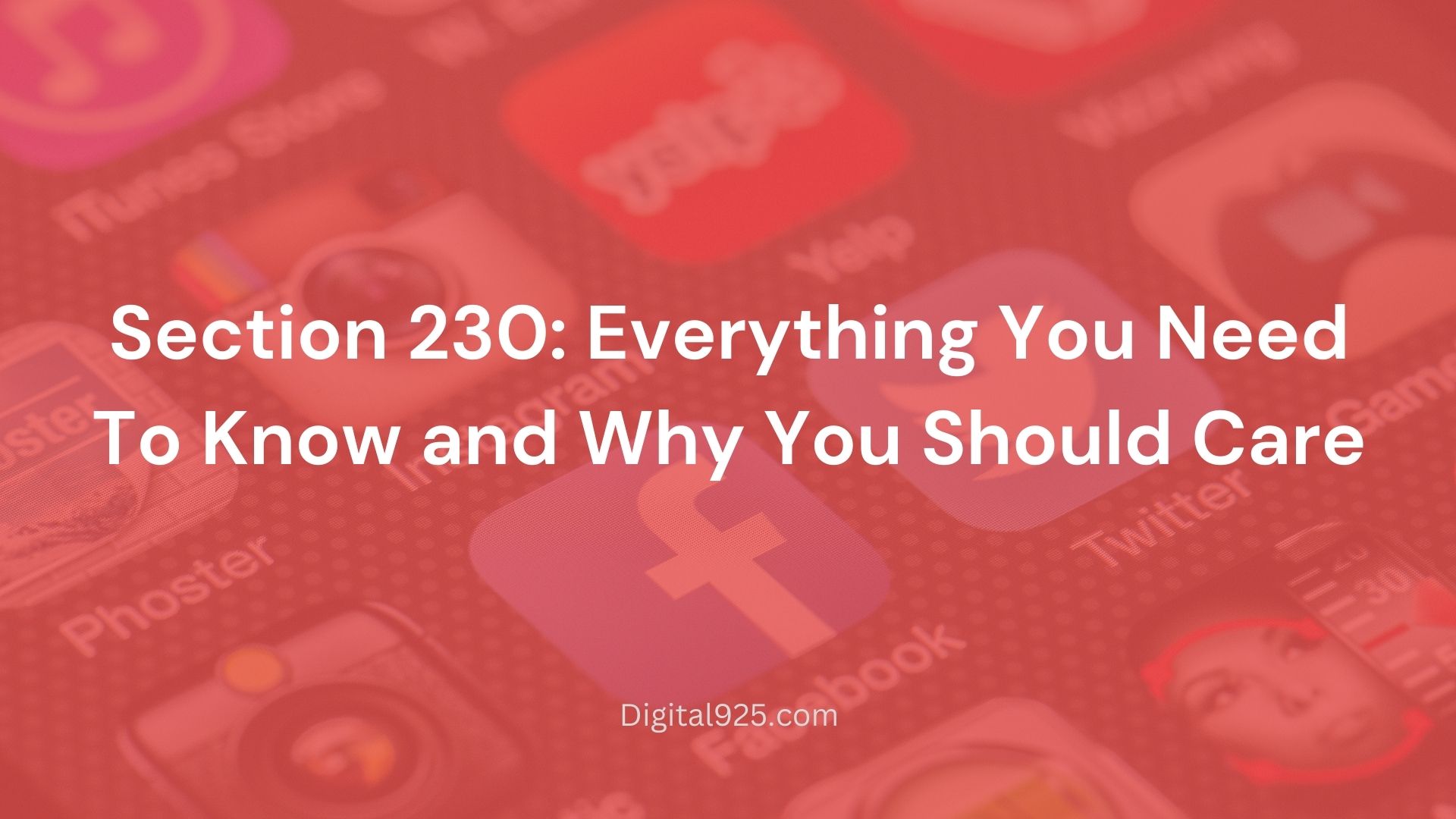Section 230: Everything You Need To Know and Why You Should Care
Section 230 of the Communications Decency Act has emerged as a crucial legal provision that plays a pivotal role in shaping the online landscape.
As technology becomes more available and easy to use we all will be welcoming these advances more into our lives. For example, you can start a profitable business in just a few clicks and spend a few hours a week.
This comprehensive guide aims to demystify the intricacies of Section 230, providing you with a comprehensive understanding of its significance and the reasons why it deserves your attention.
Understanding Section 230: The Backbone of Online Freedom
Section 230, often referred to as the “Great Equalizer of the Internet,” is a vital legal statute enacted in 1996.
Crafted with the aim of fostering online innovation and growth, it bestows a unique shield upon online platforms, protecting them from liability for user-generated content.
In essence, it empowers websites, social media platforms, and other online entities to facilitate open dialogue without fear of legal repercussions for content posted by their users.
The Pillars of Section 230
1. User-Generated Content Immunity
Under Section 230, online platforms are granted immunity from legal action arising from content posted by their users.
This groundbreaking provision allows platforms to host diverse opinions and viewpoints without being held accountable for every single post or comment.
Consequently, it fosters an environment where users can freely express themselves, enriching online discussions and promoting a variety of perspectives.
2. Platform Self-RegulationOne of the key aspects of Section 230 is that it promotes self-regulation among online platforms.
While platforms can curate content based on their community guidelines, they are not deemed publishers responsible for every piece of content.
This unique approach empowers platforms to moderate content that violates their policies without the fear of being labeled as publishers.
Why You Should Care About Section 230
1. Preserving Free Expression
Section 230 is a cornerstone of free expression in the digital realm. Without the protection it provides, platforms might be compelled to overly censor content to avoid legal issues.
This could stifle open dialogue and deprive users of the ability to share their thoughts and opinions without fear of censorship.
2. Encouraging Innovation
By safeguarding platforms from excessive legal liabilities, Section 230 encourages innovation. Start-ups and entrepreneurs can develop new platforms without being burdened by the fear of being held liable for every user's action.
This has paved the way for the creation of diverse online services and interactive communities that have transformed the way we communicate and access information.
3. Nurturing Healthy Online Communities
Section 230's protection enables platforms to moderate content that promotes hate speech, harassment, and other harmful behaviors.
This, in turn, fosters the creation of safer and more inclusive online spaces where users can engage in constructive discussions without the fear of being subjected to malicious content.
The Ongoing Debate
While Section 230 has undoubtedly played a pivotal role in shaping the digital landscape, it has also faced its fair share of criticisms and debates.
Some argue that platforms should take on greater responsibility for the content they host, while others emphasize the need to strike a balance between freedom of expression and the prevention of online harm.
Conclusion
In conclusion, Section 230 stands as a linchpin of the modern internet, facilitating open discourse, nurturing innovation, and creating online spaces that reflect the diverse tapestry of human expression.
By providing immunity to online platforms for user-generated content, it upholds the values of free speech and encourages the growth of digital communities.
As debates around its applicability continue, there's no denying that Section 230 has fundamentally transformed the way we interact, communicate, and share information in the digital age.







